Commandos from 40 Commando, currently deployed in Australia as part of the Littoral Response Group (South), have been working closely with the United States Marine Corps (USMC) ahead of Exercise Predators Run.
This collaboration includes trialling the new Polaris MRZR-D4 ultralight 4×4 off-road vehicles with the MV-22 Osprey aircraft.
The Polaris MRZR-D4 vehicles, designed for speed and agility, are an essential component of the Royal Marines’ modernisation efforts. Capable of carrying up to four commandos and reaching speeds of 60 mph, these vehicles are ideally suited for the quick raiding missions that are central to the Royal Marines’ evolving tactics.
The MRZRs are being tested for their potential to enhance rapid movement across the battlefield, allowing small teams to quickly engage and disengage from enemy positions.
#MotivationMonday – Commandos from @40commando, deployed in Australia as the Littoral Response Group (South), take the opportunity to develop closer interoperability with the @USMC. Trialling their new MRZRs with the MV-22 Osprey, in preparation for Ex Predators Run. pic.twitter.com/XA6p0KFKLx
— UK Commando Force Operations (@Commando_Ops) July 8, 2024
The MRZR-D4 can transport supplies, ammunition, water, and fuel, and can be equipped with machine guns and grenade launchers for increased firepower. Despite its lack of heavy armour, the MRZR-D4’s turbocharged diesel engine allows it to perform quick attacks, logistical resupply, and casualty evacuation.
The vehicle’s compact size also means it can be transported by Chinook helicopters, facilitating rapid deployment.
Exercise Predators Run, a multilateral combined arms exercise, will take place in the Northern Territory of Australia. In addition to forces from the UK, the exercise will involve personnel and capabilities from the Australian Army, USMC, Malaysian Armed Forces, and the Armed Forces of the Philippines.
Held at the Mount Bundey Training Area, this exercise aims to strengthen cooperation and interoperability among the participating nations’ military forces.


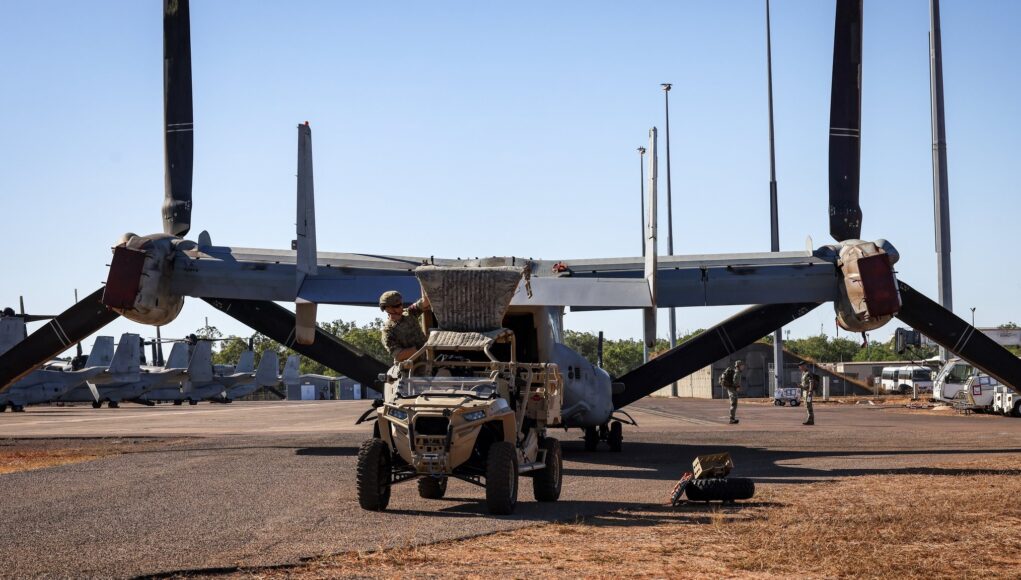
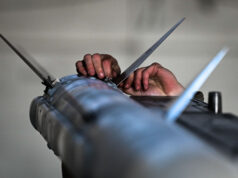

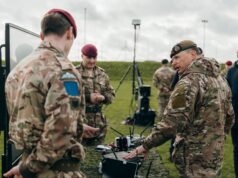

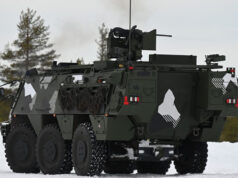

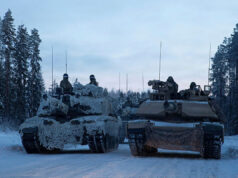

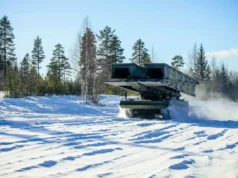
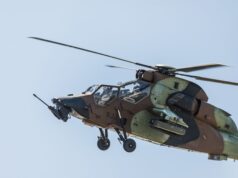

Better and more effective than the Russian’s golf carts one presumes.
Not sure it would classify as either to be fair. It would be an equal death trap in a modern drone war.
The Russian (well chinese) are working fine but lack of armour means they are getting easily wiped out.
Special forces and similar operations when the enemy isn’t expecting you they will probably be great.
using weapons of maneuver and exploitation during in an attritional fight will do that: it doesn’t mean the concept is outdated, perhaps more niche than it used to be though.
That’s exactly what these are for, raids. An RM commando strike team isn’t an armoured brigade nor does it have the same role !
The problem with raids is the enemy can now quickly counter with drones cutting off the escape route. They would be highly dangerous to use. Look at the video of the Russian raid with them with all of them destroyed by fpv drones.
There’s tonnes of examples of successful raids by Ukrainians. Also, the RM have been training with anti drone tech, for this reason.
There are a lot more examples of one’s that have failed also. This is a war of attrition and whilst Russia is taking way higher losses, Ukraine is also taking massive losses.
There’s a lot of examples of attrition from the entire conflict, not just raids. The whole thing is terrible. Drones are having Thier day the moment but soon they won’t. Anti Drone tech is coming on fast and is being factored into things like raiding.
Anti drone tech is advancing but still nothing that actually works effectively, outside good old fashioned machine gun. The issue is as jamming tech improves so does the defences against it and so its a constant battle and drone tech appears to be advancing way faster than the defences as they appear to be way cheaper.
The Russians aren’t deploying them from helicopters over long distances.
Those cheap fpv drones can’t operate over the horizon without repeaters and that takes preparation and of course the rest of the kill chain.
Not every conflict will be static and attritional.
I’m pretty sure any conflict against a peer opponent would rapidly become it. The reason conflicts become more mobile was the tank and this war has basically demonstrated that their day is over at least for now until a solution can be found.
Its also almost impossible to build up a tank force for either side as drones are always watching and so they are seen building up long before they are ready to deploy, logistics chains needed for them are just too long.
There is a version that carries an anti drone ECM.
Has any of the anti drone tech been proven to actually work? That’s the issue, until they can be combat tested no one including the MOD can plan around them.
Why, yet again, have we bought American equipment? Doesn’t Supacat offer a lightweight 4×4 that would be air transportable? US missiles for Apache instead of Brimstone.
The new govt has already mentioned a defence industrial strategy. Never saw much evidence of the one announced by the previous govt, with an ever increasing proportion of the defence equipment budget spent abroad.
Colonel David Amlot, deputy commander attack, 1st Aviation Brigade Combat Team and commander of Wattisham Flying Station, calls the European-built Brimstone an “excellent weapon system” but points out that JAGM “is designed specifically to integrate with the sights and sensors of this aircraft”.
At this point in time, JAGM “is certainly a capable weapon system specifically designed to work with the [Apache’s] radar and sights and sensors which gives us extra capability… that Brimstone would not,” he says.
British Army eyes rapid ramp-up of capability with new Apache fleet | News | Flight Global
I don’t think Supacat does anything this light.
As far as I’ve read, the cost of integration made Brimstone too expensive – plus presumably extending the actual deployment timescale to an unknown future date – and we all know how fabulously things work out when UK-only modifications are done during procurement projects.
I swear – every single time the UK interferes with an off-the-shelf product to wedge British industry into the mix, it harms us.. Never mind recent examples like Ajax and Chinook HC3, you can go back as far as the 60’s with the UK fitting Rolls Royce engines to Phantoms, which ended up with the unit price being THREE TIMES that of an off-the shelf F4, resulting in a huge cut in numbers purchased.
I’ve no objection to buying British (although MBDA is mostly French) where possible, but it seems all too often that’s taken priority over actual capability – like MoD procurement is really just a gigantic jobs programme with defence capacity an occasional pleasant side-effect if we’re lucky.
100% agreed – As a former serving member of HM Forces I never liked this whole ‘Buy British’ mentality and neither did the soldiers in my unit. Buy British sometimes we would end up with stuff being overly expensive and no better than another militaries equipment. SA80 comes to mind as another one….Ajax is another although a Spanish design Smart procurement was the way forward and buy the best equipment that is tried and tested and available in large volumes! Also because of high volume of sales typically the kit will have a longer shelf life and be subject to upgrades.
That is EXACTLY, in my opinion, how I think HMG and MPs see the defence budget.
And so they should. We run a chronic trade deficit. Sourcing as much equipment domestically helps to mitigate that. In my view, we should go further in that direction, in the hope that we can regain defence export markets we have lost over the last few decades.
European countries that support and in many cases own their major defence suppliers, eg France or Italy, tend to have larger forces at lower cost. Clearly, in some instances, especially after years of allowing land equipment design and manufacture to wither away, we may incur heavier costs to include domestic participation in rebuilding that capacity. Ajax is an example.
MBDA is not largely French. It is owned 37.5% by BAE, 37.5% by Airbus and 25% by Leonardo/Finmeccanica.About a third of employees are UK based.
A key way of maintaining popular support for defence expenditure is to maximize domestic production. In the US, it is enshrined in law.
Powers that ignore their military manufacturer and development infrastructure loss the important wars they have to fight. Simply put geopolitics shift as do allies and enemies….so being dependent on other nations for your military power is not a good idea if you can avoid it…let’s just remember we have been at war with every major ally we presently have and are now enemies with powers that were once allies… within living memory we were in an existential war of destruction with two nations that are now are closest allies…before WW Germany had been an ally and France the greatest strategic threat to this nation ever and had been for 800 years..then at the flick of switch we were defending France against Germany…Russia has been an enemy, then an ally then an enemy, then an ally then an enemy…more times than I can shake a stick at…there were still people in the US leadership that hated the UK with a passion 80 years ago..so much so they actively worked against the UKs interest while we were allies in an existential war of destruction…….Alliances are important ..but you can never ever depend on other nations for your key national interests…France is fanatical about this as are almost all major powers…what happens if say your MBT was purchased from a nation that suddenly did not like what you were doing and your source of spares came from that nation….your in trouble….just look how easy it’s been for the UK to deprive Argentinas access to western aircraft over the last 40 years.
Fair point.
I agree totally. If we are prepared to buy off the shelf, why bother with Tempest? Why not have our warships built cheaply abroad with fitting out only left in the UK, just like Denmark do?
Obsession with market forces has exposed UK defence industry to unfair competition with US companies that not only have a huge market but a protected one; and European companies, wholly or partly owned by the state and supported during lean times. The results are obvious-
* T31 a Danish design, constructed from imported steel, with German built engines, Dutch CMS and guns built in Sweden.
* Ajax, hulls built in Spain, power train in Germany, gun in France.
For a country with the 6th largest economy, this is just wrong, and as you point out, strategically risky.
We have to revive UK defence manufacturing in part by having long term plans. With all major parties saying more or less the same thing, now is the time to get cross party agreement.
Indeed, every nation that can develops its own military industrial complex and builds its own equipment..even if it’s inferior or more expensive. Because in the end armies fight wars but it’s nations that win or loss the wars that really matter..
The brutal truth is that sometimes the UK has sent our armed forces off to fight with inferior equipment and sometimes superior equipment…in the end that’s not what really either won or lost campaigns.
Sometimes you do need to buy in a foreign bit of kit…but if your own nation can provide it that’s the way you go..and if you can’t then when you procure the foreign kit you ensure you get Tec transfer and the ability to build that tec base in your own country…
Simply buying abroad and quoting the fact the MOD could buy it cheaper from a foreign company is strategically irresponsible on a number of levels:
1) sovereign capability and sovereignty. Because once we have lost that sovereign capacity to build that capability..we are weakened at at the mercy of a foreign sovereign power to field that capability…
2) Economic and industrial capabilities.because once that precious tax pound is spent outside the UK it’s gone to stimulate and grow another nations strategic industrial capacity, wider economy and tax base…and its one less pound to stimulate and develop our own….not only that but the foreign nations exchequer gets the sales tax’s, export tax’s and corporation tax…then the wages paid to the workers provides greater stimulus to the economy…and more money to the exchequer..including income tax, sales tax, council tax, car tax, tax on savings….etc etc…
The reality is that around 50% of anything spent by the government on contracts in the UK will end up back in the tax take..after also wandering around stimulating wider economic growth ( infact studies have shown that 1 pound of government money invested in the UK can generate up to 4 pounds in the wider economy)….
Making pragmatic short term in year savings to the defence budget by purchasing cheaper products from other nations..seems in the short term like good sense..but will inevitably in the long term degrade an nations ability to win a war by reducing: sovereignty over military capabilities, strategic military industrial capacity, economic capability and finally the nations link with its military industrial complex ( reducing political will to fight) ..the four core pillars a nation needs to win wars…its own military capabilities it can use at will,..industrial capability to create the materials to fight..the ability to generate money to fuel a war and the populations willingness to fight a war ( the populations links to it’s military)…
We do have an in-house company called land rover if they were given a large enough order they would be happy to produce a world beating product or speak to Jim Rstcliffe he has an interest in 4 x4 vehicles or even 6 wheels yes we must try to be self sufficient not line other people’s pockets.
We must have people in UK who could bring this into production in 9 months if left alone
Yes Charles V you are very correct every single time the UK interferes with an off-the-shelf product to wedge British industry into the mix, it harms us.. Still can remember the AEW Nimrod 200 – 300 Million that would be the total cost We ploughed millions and Millions into this Airframe at cancellation over a a billion pounds was spent UK then decided to try and converting them to missile carrying Airframes even that didn’t get off the ground UK seem to try and change everything and Ajax is another complete mess still have none on the front line
“Ajax is another complete mess still have none on the front line”
I don’t think that is correct. The first troops of the HCR have been using the vehicle for some time.
I respectfully disagree with Colin and Charles V, give a man a fish and he eats for a day, teach him to fish and he will eat for life. If we rebuild our defence industry we may get some expensive, average products early on but as skills improve and supply networks develop prices will come down and quality will go up. The Americans French and Germans all did the same and Korea is doing it now with huge success. I would like to see Supacat team up with Ariel to fill this role.
Well Ajax is a firm cost contract…that is now being delivered..so I would not call it a complete mess..if it had never been delivered it would have been a complete mess…but it’s being delivered.
Fixed price contrats also should have a fixed time delivery.
It’s a firm priced contract Alex, thank goodness or else the costs would have gone up. Around time it all depends on what’s in the contract…I suspect because it was firm price they could not put any significant penalty in for time..the very fact it’s a firm price will kill the contractor if they go over time…I suspect GD UK suffered losses on this contract. If it’s a fixed price contract you would have more time related penalties in there.
What a useless photo! At first I thought it was a dirty clothes basket caught up the the rear of an aircraft. Cant RM photographers take goof phots these days ?
What we need are smaller submarines. It’s better to have 20 small subs with half a dozen cruise missiles than 2 subs with 20.